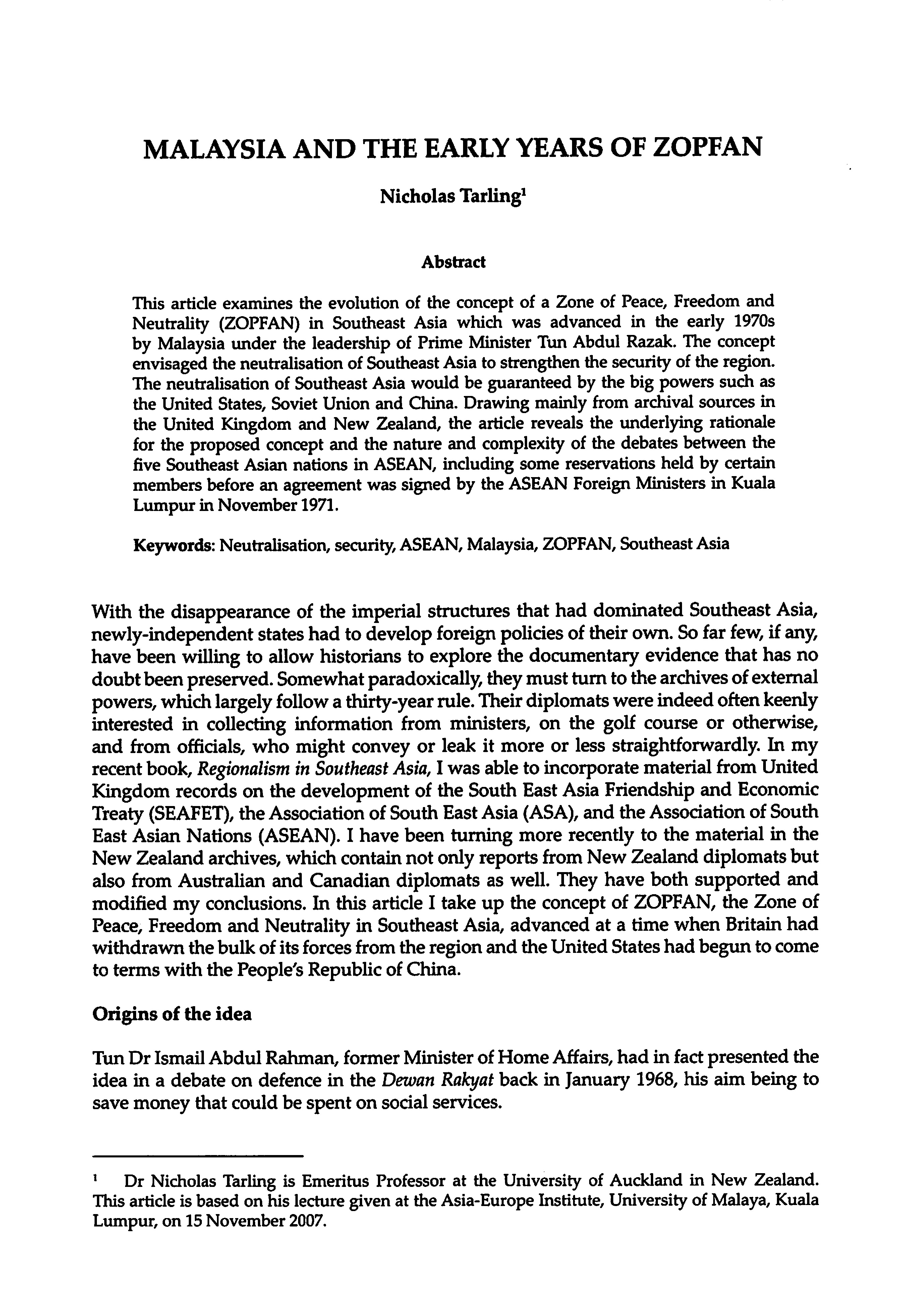MALAYSIA AND THE EARLY YEARS OF ZOPFAN
Main Article Content
Abstract
This article examines the evolution of the concept of a Zone of Peace, Freedom and Neutrality (ZOPFAN) in Southeast Asia which was advanced in the early 1970s by Malaysia under the leadership of Prime Minister Tun Abdul Razak. The concept envisaged the neutralisation of Southeast Asia to strengthen the security of the region. The neutralisation of Southeast Asia would be guaranteed by the big powers such as the United States, Soviet Union and China. Drawing mainly from archival sources in the United Kingdom and New Zealand, the article reveals the underlying rationale for the proposed concept and the nature and complexity of the debates between the five Southeast Asian nations in ASEAN, including some reservations held by certain members before an agreement was signed by the ASEAN Foreign Ministers in Kuala Lumpur in November 1971.

